Singer displays the range of Peking Opera
Updated: 2016-10-15 00:07
By China Daily in Washington(China Daily USA)
|
||||||||
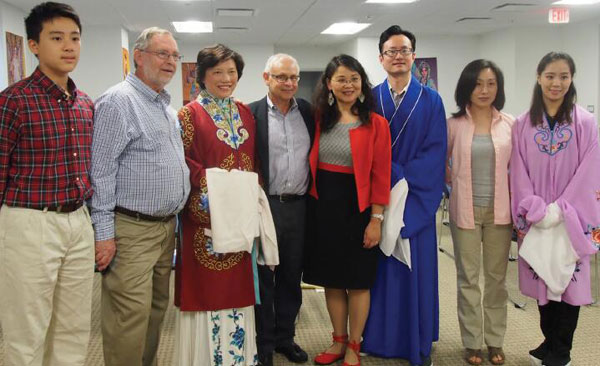 |
|
Organizers and participants in an interactive seminar held by DC Beauty of Beijing Opera (DCBBO) about the charms of Peking Opera, Saturday morning at the Confucius Institute US Center in Washington. From left, Issac Xie who played jinghu during the seminar; a participant in the seminar; Sarah Xie, a DCBBO member who performed a segment of Mu Guiying Takes Command during the seminar; a participant in the seminar; Louisa Huang, a DCBBO member and the lead facilitator of the seminar; Gao Qing, executive director of the Confucius Institute US Center; Cynthia Yung, a DCBBO member and Zhang Shiying who showed the basic movements of the Peking Opera to the audience. Yuan Yuan / For China Daily |
Waves of cheers cascaded over Sarah Xie as her high-pitched voice reverberated during the climax of her piece from the Peking Opera, or Beijing Opera, classic Mu Guiying Takes Command.
In a dark-red gown with golden silk embroidery, Xie portrayed Mu, a legendary female general during the Song Dynasty. She also danced while holding a yellow package, indicating what the story was about during the Oct 8 performance at the Confucius Institute US Center in Washington.
“Peking Opera is more difficult than any other operas because a performer should be well-rounded, not only in terms of singing and acting, but also in physical movement,” said DC Beauty of Beijing Opera’s member Cynthia Yung. “A Peking Opera performer is often trained to be a singer, a dancer and a acrobat. Therefore, Peking Opera can be considered a performer-centered art.”
Xie’s performance was part of the Beijing Opera Seminar presented by the DC Beauty of Beijing Opera (DCBBO), a non-profit organization consisting of five Peking Opera amateur performers, including Xie and Yung.
The organization aims to promote Peking Opera to a broader audience while maintaining the existing Chinese and Chinese-American audience.
The seminar started with an introduction by Louisa Huang, the seminar’s lead facilitator as well as a DCBBO member.
Peking Opera is a form of traditional Chinese theatre that combines music, vocal performance, mime, dance and acrobatics. It arose in the late 18th century and became fully developed and recognized by the mid-19th century, according to Huang’s presentation.
Performers use speech, song, dance in movements that are symbolic and suggestive, rather than realistic, to present stories from Chinese history, literature or folk legends.
The roles in Peking Opera consist of fixed character types: sheng (male role), dan (female role), jing (painted faces) and chou (male clowns). Each type of character has its own set of performance conventions.
“The most important stylization is roundness—we have to avoid the sharp angles and straight lines,” Huang said. “If you are familiar with Chinese people, we never say things explicitly, right?”
When you look at the movement of Peking Opera, you’d notice that it coincides with Chinese culture and value, Huang said.
“If I want to look at the left, I don’t look at the left,” she demonstrated. “I look at the right and then move to the left.”
The seminar also covered the basics of Peking Opera. Zhang Shiying, a master’s degree candidate in arts management at George Mason University, showed the audience how a Peking Opera performer moves and acts.
A graduate of the Chinese Academy of Opera, Zhang once performed in a New Year’s gala for President Xi Jinping and is passionate about promoting Chinese opera in the US.
“We usually focus on performance rather than the story itself because Peking Opera relies on the singing, dancing and performance skills of the performers to appeal to the audience,” Yung said. “A Peking Opera lover may watch the same story hundreds of times just to appreciate how the performers perform.”
Costume is another important component of Peking Opera, and along with the make-up is crucial in indicating the personality, social status and background of a character, Huang explained.
“Chinese people have their own interpretations of colors,” Huang said. “From the patterns and patches on the costumes, you can tell immediately what the rank of the person is.”
She showed the audience a red garment with a patch of mang, instead of long, which stands for the emperor. It would be awarded by the emperor to the best scholar.
Chinese opera lover Olivia Brann tried on a sky-blue costume and learned to use water sleeves with Xie during an interactive session after the presentation.
Brann has two degrees in Chinese theatre and had studied Huangmei Opera, another famous Chinese opera that originated as a form of rural folk song and dance, about two years ago in China.
She immediately matched the right characters with their appearances when Huang showed three photos of different characters and asked the audience to guess during the presentation.
“I was very excited to come and attend, and I’ve learned a lot today,” Brann said. “I’m very passionate about the preservation of Chinese operas, and I actually really love in the future to help bring over more companies to perform in the United States.”
Sharing a similar mission with the Confucius Institute, a non-profit public educational organization promoting Chinese language and culture, DCBBO seeks to complement the institute by providing more information for those interested in Chinese culture.
“When you learn about the Chinese language, you inevitably expose yourself to Chinese cultural heritage, in which Peking Opera plays a big part,” Yung said. “We try to help them understand and learn how to appreciate Peking Opera with performances, seminars and workshops.”
“Peking Opera consists of massive classical Chinese content, which can be very hard for the US audience to grasp, even after careful translation,” said Sun Sha, an arts management graduate student at George Mason University.
Instead of having the audience understand the content, Sun suggested the related organizations try to engage the US audience with the beauty of the music, movement, costume and make-up of the Chinese operas, because they are more direct and universally understandable.
Yuan Yuan in Washington contributed to the story
- Hollande, Merkel, Putin discuss how to implement Minsk peace deal
- Pentagon vows to respond to attempted missile attacks at US destroyer near Yemen
- NASA to invite private companies to install modules on space station
- Trump accused of inappropriate touching by two women
- White House denounces terror attacks in Afghanistan
- Republican voters frown on party establishment's criticism of Donald Trump

 Birthday celebration held for panda cubs at Toronto Zoo
Birthday celebration held for panda cubs at Toronto Zoo
 China's top 10 enterprises by revenue in 2015
China's top 10 enterprises by revenue in 2015
 Robots, 3D printed food big hit at Shenzhen Maker Week
Robots, 3D printed food big hit at Shenzhen Maker Week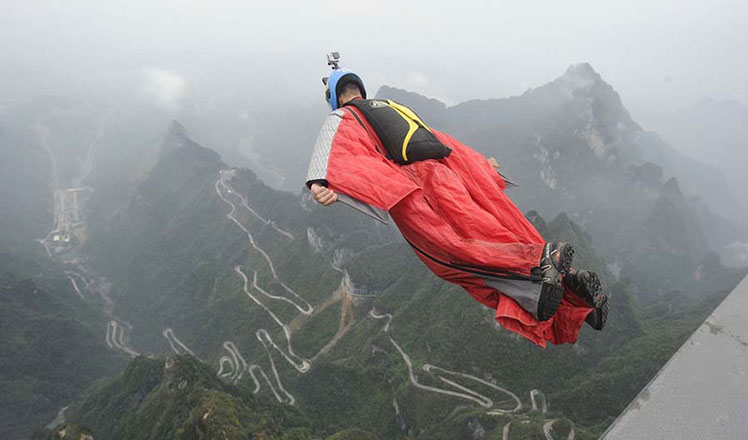
 Flying over the mountains in wingsuit in Zhangjiajie
Flying over the mountains in wingsuit in Zhangjiajie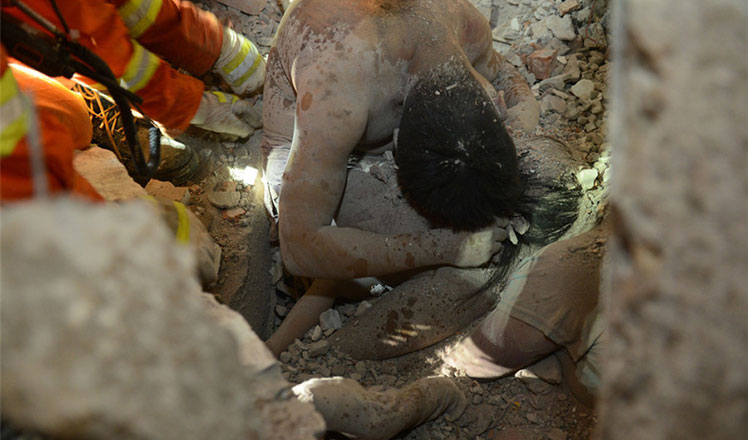
 Ten photos from around China: Oct 7-13
Ten photos from around China: Oct 7-13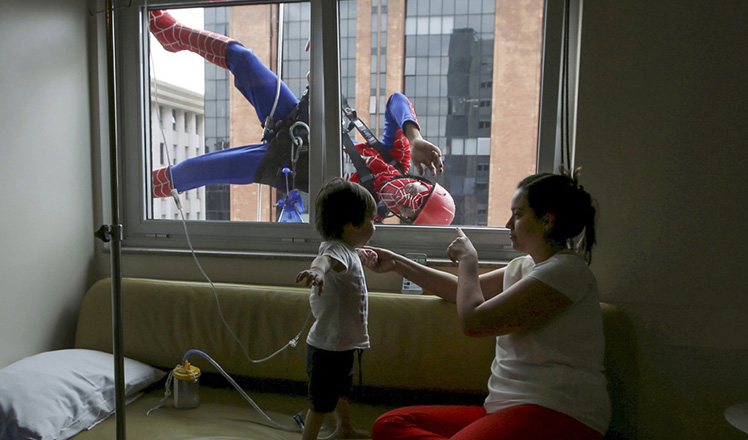
 Superheroes make surprise visit to children's hospital
Superheroes make surprise visit to children's hospital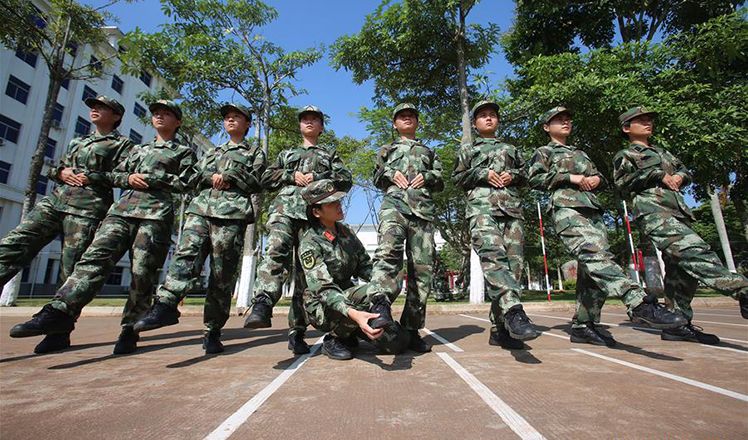
 Female soldiers take training in Hainan
Female soldiers take training in Hainan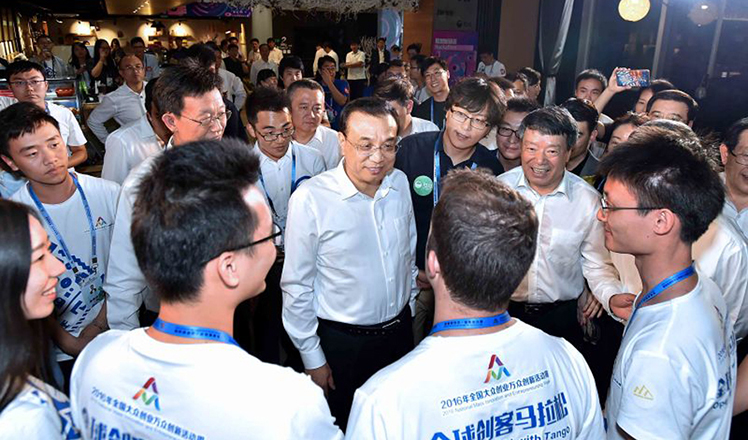
 Premier Li vows anew to ease market access
Premier Li vows anew to ease market access
Most Viewed
Editor's Picks

|

|

|

|

|

|
Today's Top News
Trump outlines anti-terror plan, proposing extreme vetting for immigrants
Phelps puts spotlight on cupping
US launches airstrikes against IS targets in Libya's Sirte
Ministry slams US-Korean THAAD deployment
Two police officers shot at protest in Dallas
Abe's blame game reveals his policies failing to get results
Ending wildlife trafficking must be policy priority in Asia
Effects of supply-side reform take time to be seen
US Weekly

|

|







